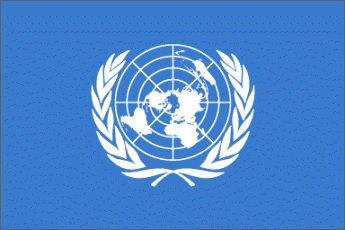Sudan says suspension of UN voting rights “politically motivated”
February 3, 2013 (KHARTOUM) – The Sudanese government is working to resolve the issue of outstanding financial obligations to the United Nations which led to the country losing its voting rights at the world body.
 Diplomatic sources told Sudan Tribune that Khartoum is working on coming up with the money and said they expect this to be completed within the week.
Diplomatic sources told Sudan Tribune that Khartoum is working on coming up with the money and said they expect this to be completed within the week.
Sudan owes $1 million in arrears to the UN and needs to pay a minimum of $347,879 to reinstate its voting rights.
Article 19 of the UN charter states that “a member state in arrears in the payment of its dues in an amount that equals or exceeds the contributions due for two preceding years can lose its vote in the General Assembly”.
This is the second time that Sudan has had its voting rights suspended since 2012 over non-payment of its dues.
Initially the Sudanese ambassador at the United Nations, Daffa-Alla Elhag Ali Osman, denied his government was behind on its dues to the UN and insisted that they are current up until 2013.
But the Sudanese foreign ministry’s Rahmatallah Osman said this week that the finance ministry did not respond positively to their request for funds to pay the UN.
Later Sudan’s UN envoy said that because Sudan is unable to obtain or maintain a bank account in New York the country convinced the UN to accept its payments through the UN’s resident coordinator in Khartoum.
He stressed that payments were being made, but there were logistical problems.
The head of the Foreign Relations Committee at the Sudanese parliament, Mohamed al-Hassan al-Amin, on Sunday downplayed the significance of the vote suspension, saying that it is temporary and that it was a result of negligence by some government agencies and a lack of liquidity in possession of the finance ministry.
Al-Amin said, however, that barring Sudan from voting as a result of the arrears is “not an innocent” move, adding it appeared to be “politically motivated”.
The ruling party figure went on to say that some countries are in the same situation as Sudan but were spared the vote suspension action.
Other countries sanctioned along with Sudan included Cape Verde, Dominica, Dominican Republic, Equatorial Guinea, Gabon, Grenada, Kyrgyzstan, Marshall Islands, Saint Lucia, Seychelles, Sierra Leone, Vanuatu, Venezuela and Zimbabwe.
An exception is allowed from the application of Article 19 if the member state can show that conditions beyond its control contributed to its inability to pay.
Last October, the UN General Assembly adopted a resolution by which it decided that Central African Republic (CAR), The Comoros, Guinea-Bissau, Sao Tome and Principe and Somalia shall be permitted to vote in the assembly until the end of its 67th session.
Sudan has lost billions of dollars in oil receipts since the South gained independence in mid-2011, and is plagued by soaring prices and a weakening currency, with no economic solution in sight for the bankrupt nation.
Prior to partition, about three-quarters of crude production came from the South and accounted for more than 85% of Khartoum’s export earnings, which reached $7.5 billion in the first half of 2011, according to the World Bank.
(ST)
